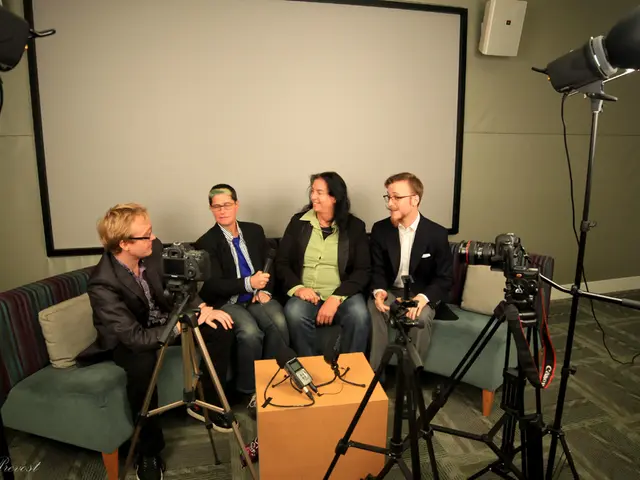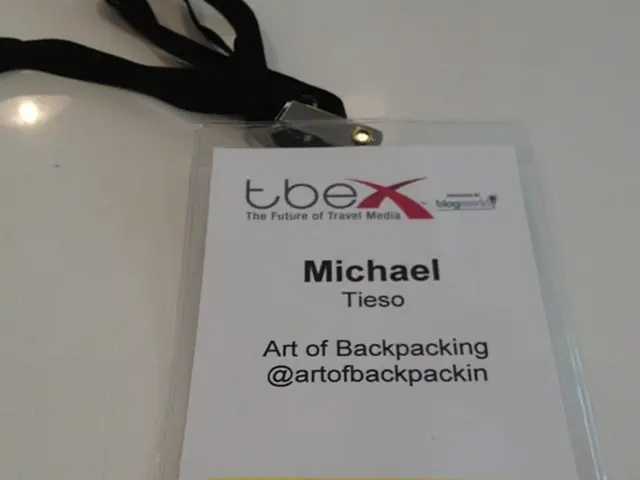Germany Emerges as an Attractive Destination for American Researchers Seeking Alternatives
During a recent visit to Geomar, a renowned marine research institution, Federal Research Minister Dorothee Bär emphasized the institution's potential for those aspiring to become researchers. Bär, a member of the Christian Social Union (CSU), also extended an invitation to US researchers, highlighting Germany's offer as a stable and well-funded research environment, especially relevant given the current challenges in US science policy.
Geomar, employing almost 1,000 people, is a hub for world-class research. The offer extends to various levels, including post-docs and students, not just top professorships. It encompasses freedom of science, research, and teaching, as enshrined in the Basic Law.
Bär discussed possibilities for earthquake monitoring and tsunami warning using seabed measuring devices. She also addressed the issue of locating and salvaging munitions from World War I and II in the North and Baltic Seas. The minister praised Geomar's top research in marine research and climate protection.
The offer is not limited to the US but extends to international talents. It is associated with the 1,000-strong "Plus-Programme" of the federal government.
In light of the perceived climate-hostility in US science policy during the Trump administration, German programs present a stable alternative for US researchers interested in sustainability, climate science, and related interdisciplinary research fields.
Several programs support this research collaboration. The DAAD Research Grants enable international doctoral candidates and postdocs to carry out independent research at state-recognized German universities or institutes. The DAAD/AGI Research Fellowship allows scholars working on German-American relations to conduct research at the American-German Institute in Washington, DC.
Under the NSF-DFG Lead Agency Procedure, US and German researchers can submit joint proposals for research projects, benefiting from streamlined funding administration and emphasizing the value of US-German collaboration. The Graduate Center Plus at the University of Duisburg-Essen provides comprehensive support for early career researchers, facilitating integration into Germany’s research environment.
While Germany's ability to absorb all the funding cut in areas like climate research or NASA in the US is limited, it can offer a new home for US researchers. A large part of marine life remains undiscovered, as mentioned by Bär, making the field ripe for exploration and research.
In summary, the Plus-Programme and related German research funding opportunities provide US researchers with funded access to German universities and institutes, encourage interdisciplinary and transatlantic collaboration, and offer a supportive alternative during periods of uncertainty in US scientific policy under President Trump.
[1] DAAD Research Grants: https://www.daad.de/deutschland/stipendium/postdoc/stipendien/en/18894-postdoc-research-grants/ [2] DAAD/AGI Research Fellowship: https://www.daad.de/deutschland/stipendium/postdoc/stipendien/en/18895-agi-research-fellowship/ [3] Graduate Center Plus: https://www.uni-due.de/graduateschool/en/ [4] NSF-DFG Lead Agency Procedure: https://www.nsf.gov/od/oia/programs/international/dfg/ [5] Georg Forster Research Fellowship: https://www.humboldt-foundation.de/web/georg-forster-programme.html
Science and education-and-self-development opportunities within the Plus-Programme of the federal government extend to international talents, including US researchers. The 1,000-strong Plus-Programme offers funded access to German universities and institutes, encouraging interdisciplinary and transatlantic collaboration in various scientific fields, such as marine research and climate protection.




